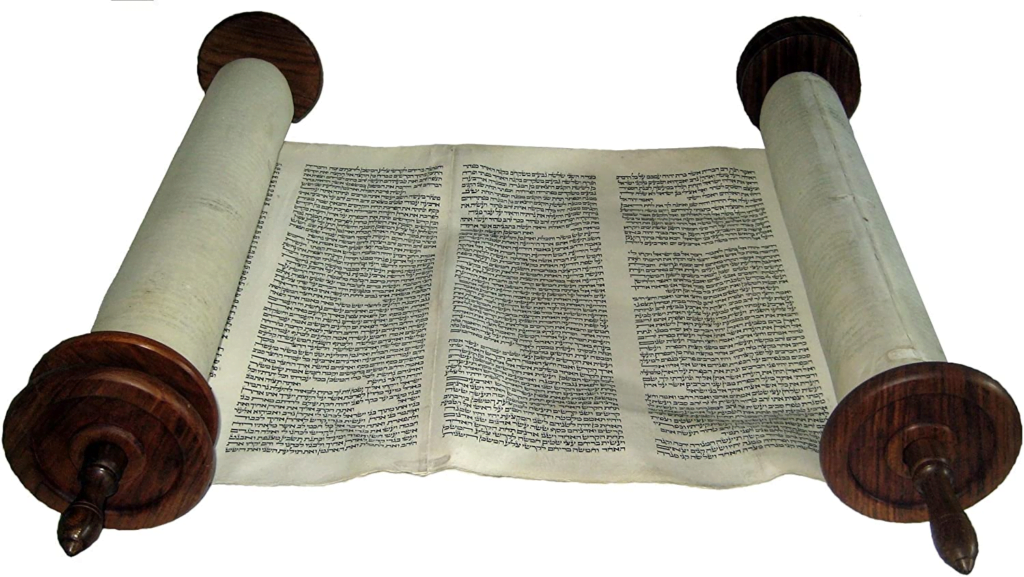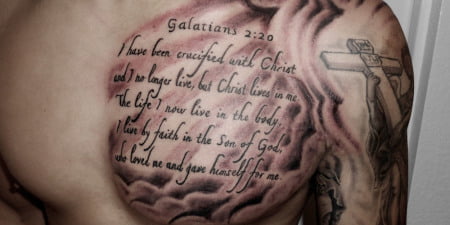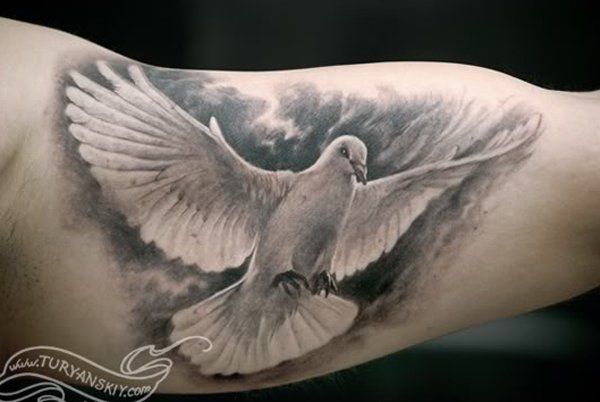Tattoos are a way people express themselves through art, and they often carry deep personal and cultural meanings. However, in the Christian community, the decision to get a tattoo can lead to various opinions and thoughts, sparking questions about faith, tradition, and biblical interpretation. “Is it okay for a Christian to get a tattoo?” is a question that prompts us to explore these different ideas. In this article, we will delve into what Christians think about tattoos, including the arguments for and against them from the Bible and theology. We’ll also discuss the kinds of tattoos that Christians often get and what they symbolize.
What Does the Bible Say About Tattoos?
The issue of tattoos in relation to religious beliefs, specifically within the Christian faith, has been a topic of debate and discussion for many years. Leviticus 19:28, a verse from the Old Testament of the Bible, is frequently cited in these discussions. It reads, “You shall not make any cuttings in your flesh for the dead, nor tattoo any marks on you: I am the LORD.” However, the interpretation of this passage and its implications for Christians considering tattoos vary widely. This article aims to explore the different interpretations of Leviticus 19:28 and the arguments both for and against tattoos based on the Bible.
Different Interpretations of Leviticus 19:28
There are various interpretations of Leviticus 19:28, reflecting the diverse perspectives on the role of tattoos within the Christian faith:

- Prohibition of Pagan Practices
One common interpretation of Leviticus 19:28 is that it was intended to prevent the Israelites from adopting pagan practices. In the ancient world, tattoos and body markings were often associated with idolatrous and pagan rituals. The prohibition was a way of preserving the distinctiveness of the Israelites as God’s chosen people.
- Historical and Cultural Context
To understand the intent of this verse, it’s essential to consider the historical and cultural context of the time when it was written. Leviticus is a part of the Mosaic law, which contained a wide range of regulations governing the lives of the Israelites. The prohibition against tattoos may have been influenced by the customs and practices of neighboring cultures, which the Israelites were instructed to avoid.
- Specificity of the Prohibition
Leviticus 19:28 is quite specific in its language. It mentions “cuttings in your flesh for the dead” and “tattoo any marks on you.” Some argue that this specificity implies that the prohibition was directed at particular types of tattoos and body modifications, such as those made in mourning for the dead or as part of pagan rituals. Therefore, it may not be a blanket prohibition against all forms of tattooing.
Arguments for Tattoos Based on the Bible
Before delving into the context of Leviticus 19:28, it’s important to note that many Christians argue that the New Covenant in Christ supersedes certain Old Testament laws, and they view tattoos as a matter of personal freedom within the bounds of Christian principles.

- Context Matters
One argument in favor of tattoos is that the context in which Leviticus 19:28 was written should be taken into account. The specific practices it mentions, such as cutting for the dead and pagan tattoos, may not reflect the tattoos that people get today. Modern tattoos are often personal expressions of art or carry meaningful symbols, rather than being associated with idolatrous rituals.
- New Covenant in Christ
Many Christians argue that the New Testament supersedes some of the Old Testament laws, and they point to the New Covenant in Christ as evidence. They believe that the grace and forgiveness offered through Jesus Christ allows for greater personal freedom, and that Leviticus 19:28 should be understood in the context of the Old Covenant.
- Freedom in Christ
Some Christians view tattoos as a matter of personal freedom. They believe that as long as the tattoos are not contrary to Christian principles and do not dishonor God, individuals should have the liberty to make decisions about their own bodies, including getting tattoos.
Arguments Against Tattoos Based on the Bible
These arguments reflect the concerns some Christians have about tattoos, but it’s important to note that interpretations of biblical teachings can vary among individuals and denominations.
- Respect for Tradition
Many Christians argue that it is important to respect and uphold traditional interpretations of the Bible. The prohibition in Leviticus 19:28 has been understood as a blanket restriction on tattoos for centuries, and they believe that altering this interpretation would disregard the wisdom of tradition.
- Avoiding Worldly Conformity
Some Christians view tattoos as a form of worldly conformity and argue that they can detract from the holiness and distinctiveness of a Christian life. They believe that avoiding tattoos helps them stand out as followers of Christ in a secular world.
- Potential for Sinful Motivations
Critics of tattoos often argue that they can be associated with vanity, pride, and inappropriate motivations. They caution against getting tattoos that might promote a sinful lifestyle or draw attention away from one’s faith.
The Relationship Between Tattoos and the Body as the Temple of the Holy Spirit
A significant theological consideration regarding tattoos in Christianity revolves around the belief that the body is the temple of the Holy Spirit (1 Corinthians 6:19). This perspective informs the debate in the following ways:
- Respect and Reverence
Some Christians argue that tattoos can be seen as a form of self-mutilation or disrespect toward the body, which is meant to be a dwelling place for the Holy Spirit. They view tattoos as a desecration of the temple that God has created.
- Honoring the Body
On the contrary, others believe that tattoos can be a way of honoring the body as a temple by using it to display one’s faith or values. They see tattoos as a means of glorifying God through the art and symbols they choose to ink on their bodies.
- Motivations Matter
The key factor in this debate is the motivation behind getting a tattoo. If the intention is to glorify God, express faith, or convey meaningful messages, it can be seen as a positive use of the body as a temple. However, if the motivation is rooted in vanity or sinful desires, it may be viewed as a desecration.
The Theological Perspective on Tattoos
The theological perspective on tattoos within Christianity is a complex and multifaceted issue that varies among Christian scholars, pastors, and denominations. While some embrace tattoos as a form of self-expression, others view them through the lens of theological considerations, examining their relationship with the body as the temple of the Holy Spirit.
Views of Christian Scholars and Pastors on Tattoos
Christian scholars and pastors hold diverse perspectives on tattoos, reflecting a wide spectrum of beliefs within the faith:
- Acceptance and Personal Freedom
Some Christian scholars and pastors argue that tattoos can be acceptable and are a matter of personal freedom. They emphasize that the Bible’s teachings should be interpreted within the context of culture and society. Rev. Dr. John Piper, a well-known pastor and author, has stated that he sees no biblical prohibition against tattoos and believes they can be a form of self-expression that does not contradict Christian principles.
- Cautious Approval with Caveats
Others take a more cautious approach, expressing approval for tattoos in moderation. They suggest that tattoos should be chosen carefully, with meaningful symbols or messages that reflect one’s faith or values. Christian author and pastor Mark Driscoll, for example, has discussed the appropriateness of Christian-themed tattoos and their potential to serve as testimonies to one’s faith.
- Reservations and Caution
Some Christian scholars and pastors hold reservations about tattoos due to concerns about the potential for sinful motivations or worldly conformity. They emphasize the need for discernment and question whether tattoos align with the call for Christians to live a holy and set-apart life. Rev. Rick Warren, author of “The Purpose Driven Life,” has expressed reservations about tattoos that may glorify self rather than God.
- Stricter Opposition
A minority of Christian scholars and pastors take a stricter stance against tattoos, often citing Old Testament verses such as Leviticus 19:28 as a basis for their opposition. They argue that tattoos are a violation of biblical principles and should be avoided. Some more conservative Christian leaders, such as John MacArthur, fall into this category.
Different Christian Denominations’ Teachings on Tattoos
Christian denominations vary in their teachings and acceptance of tattoos:
- Roman Catholicism
The Roman Catholic Church does not have an official stance against tattoos. While tattoos are not explicitly addressed in Catholic doctrine, some Catholics choose to get tattoos that reflect their faith, such as religious symbols or icons of saints.
- Protestantism
Protestant denominations differ in their views on tattoos. Many mainstream Protestant denominations do not have strict prohibitions against tattoos, leaving the decision to individual believers. However, more conservative branches may discourage or forbid tattoos based on their interpretation of biblical principles.
- Eastern Orthodoxy
Eastern Orthodox Christianity generally permits tattoos, and they are common in some Orthodox cultures. Tattoos often depict religious symbols or images of saints and are seen as an expression of faith.
- Mormonism
The Church of Jesus Christ of Latter-day Saints (Mormonism) discourages tattoos but does not prohibit them. Members are advised to consider the potential cultural and spiritual consequences before getting a tattoo.
Different Types of Tattoos Popular Among Christians
Christian tattoos are a deeply personal expression of faith and identity. They carry profound symbolism and meaning, reflecting an individual’s beliefs and their unique connection to Christianity. Let’s explore some of the most prevalent types of Christian tattoos:




- Cross Tattoos: The cross, one of the most iconic Christian symbols, represents the crucifixion and resurrection of Jesus Christ. It symbolizes faith in Jesus as the Son of God and the Savior of humanity.
- Bible Verse Tattoos: Bible verses are often chosen for their ability to encapsulate the core principles and teachings of Christianity. These verses hold personal significance, offering guidance, comfort, or inspiration to the wearer.
- Dove Tattoos: In Christianity, the dove symbolizes the Holy Spirit. Dove tattoos represent the indwelling of the Holy Spirit in one’s life, signifying peace, purity, and divine guidance. They serve as a constant reminder of the presence of the Holy Spirit as a source of inspiration and guidance.
These Christian tattoos are not just decorative; they serve as expressions of faith and a testament to one’s convictions. The choice of a particular tattoo is deeply personal, reflecting the individual’s unique connection with their Christian faith and their desire to express it through body art.
Other Christian Symbols
In addition to crosses, various other Christian symbols are incorporated into tattoos, such as the fish (ichthys), the anchor, the Alpha and Omega, the Chi-Rho, or the sacred heart.
Tattoos with Personal Meaning
Many Christians opt for tattoos with personal significance that may not be overtly religious but are deeply rooted in their faith. These tattoos could include the names of family members or loved ones, meaningful dates, or symbols that represent personal values.
The Symbolism and Meaning of Christian Tattoos
Christian tattoos are deeply personal and often carry profound symbolism and meaning for those who choose to have them. These tattoos serve as a powerful way to express faith and identity, reflecting the individual’s beliefs and personal connection to Christianity.
In this article, we’ve explored the multifaceted topic of Christian tattoos, delving into the diverse interpretations of relevant biblical passages, examining the theological perspectives, and understanding the popularity and symbolism of such tattoos among Christians. It’s clear that these tattoos serve as expressions of faith, personal identity, and a constant reminder of the core principles of Christianity.
FAQs
Are you curious about the intersection of tattoos and Christianity? We’ve compiled answers to common questions to help you navigate this complex topic.
Q: Is getting a tattoo a sin for a Christian?
A: The answer to this question varies depending on one’s interpretation of biblical teachings and personal convictions. While some Christians believe it’s a sin, others see it as a form of personal expression that can align with their faith.
Q: Can a Christian get a tattoo with religious imagery?
A: Yes, many Christians choose to get tattoos with religious symbols or verses from the Bible as a way to express their faith.
Q: Are there any specific Bible verses against tattoos?
A: The Bible does not contain explicit verses condemning tattoos, but it does emphasize the sanctity of one’s body as the temple of the Holy Spirit, which raises questions about permanently marking the body.
Q: How can I choose a Christian-themed tattoo design?
A: When selecting a Christian-themed tattoo, consider designs that hold personal meaning and reflect your faith. Common choices include crosses, doves, and verses from the Bible.
Q: What should I do if I’m unsure about getting a tattoo as a Christian?
A: If you’re uncertain about getting a tattoo, it’s essential to seek guidance from your faith community, pastor, or spiritual advisor. Prayer and thoughtful consideration can also help you make an informed decision.
Q: Are there any famous Christian figures with tattoos?
A: Yes, some well-known Christian figures, such as musicians, athletes, and pastors, have tattoos. Their choices have sparked discussions within the Christian community about the role of tattoos in expressing one’s faith.
